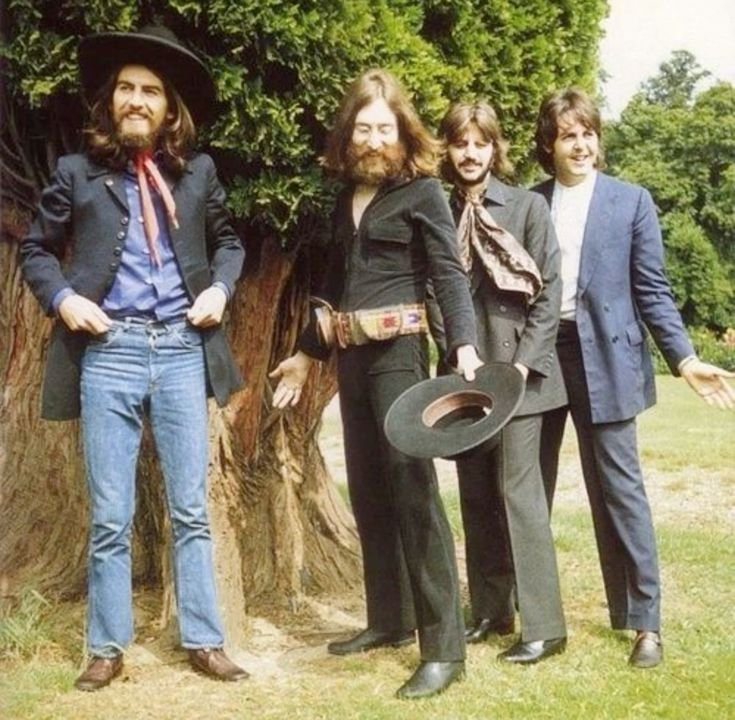“We were all on this ship in the sixties,” John Lennon once said, “our generation, a ship going to discover the New World. And the Beatles were in the crow’s nest of that ship.”
They didn’t find themselves in that lofty lookout position inadvertently. It wasn’t an easy place to be, either. But they fearlessly clambered up the greasy pole, with their peers snapping at their ankles, in a bid to ensure the ship of the ’60s was steering under the steam of their influence.
That, in my view, is the greatest triumph of the band. They were renowned melodicists, but Simon and Garfunkel arguably wrote prettier tunes. They were literary lyricists, but Bob Dylan’s quill was sharper. They were cutting edge, but far eclipsed by The Velvet Underground on that front. They were born performers, but they stopped playing live quickly enough for The Rolling Stones to call them out on it.
They were a magnificent sum of creditable parts, but the facet that saw them ascend to the apex of modern music was how vitally they grasped the zeitgeist. They wrote songs that transcended the rock ‘n’ roll boom and reckoned with society at large. That is the hardest thing for any artist to achieve: to sift through life in a certain place and time, and reflect a semblance of that life in a manner that the masses can take to heart, a manner that assures superstardom.
That’s a bold and impossible task for young kids to endure alone, so they turned to their cohorts for inspiration. Who else seemed to be capturing the spirit of the age? Well, on this front, they had to look no further than Motown.
The dinghy Detroit studio was mirroring the piston pulse that reverberated in the factories where most of the musicians worked in the propulsive rhythm of the music. That steady, moving beat became the backbone of Motown. Coupled with an upbeat sense of Friday night feeling, Berry Gordy and his gang were providing a resonant force that the public connected with. In fact, it ensured the label scored 79 top ten hits in the ’60s.
The Beatles weren’t fools; they obviously took note of what their main competitors were turning out. Paul McCartney, in particular, revered one era-defining classic.
What was Paul McCartney’s favourite Motown song?
Back in 2013, while on The Ronnie Wood Show, McCartney shared his love for Marvin Gaye’s classic ‘Hitch Hike’. “It’s like, ‘it’s a nice day outside today’,” he said of the song, “You know, the ’60s felt like the weather was always good,” he said, suffering from the rose-tint of nostalgia.
Adding, “To me, the summer, this song, ‘Hitch Hike’ – just Marvin [Gaye], the whole thing, I just love it. It’s just one of my favourite Motown tracks.”
But perhaps the highest praise that he heaped upon it was when he claimed that it ”summons up the ’60s”. That’s one hell of a thing to summon. In the years following the breakup of The Beatles, Lennon was largely disparaging of his old band. But the one thing that he never contested was how they dominated the era. Being in that crow’s nest was one of the things he was most proud of in his professional career.
Inspired by ‘Hitch Hike’, the Beatles saw to it that they would match the 1962 classic’s capacity to bottle the mood of a moment and send it spinning into every home with a device that could ensure they were heard. The dance craze that the song sparked was a proto-Beatlemania indicator that tracks could now become movements.
In ‘Hitch Hike’, there’s a wry sense of optimism and rebellion in equal measure, something that the Fab Four would foist with cheeky smiles and talk about a revolution. It was populist pop that captured the restless pulse of America, and The Beatles, at their best, endeavoured to add a mightier punch to that proposition.
’Hitch Hike’ might not say much, but it made an impact all the same. When the Beatles paired that notion with the increasing intellectualism that was exploding in art all around them, they knew they were onto the proposition that William S Burroughs professed when he wrote, “Artists to my mind are the real architects of change, and not the political legislators who implement change after the fact.“
It’s that mindset that defined The Beatles, and The Beatles defined the ’60s, in turn.
